Mohammed Bekkouche
Exploration of the scalability of LocFaults
Mar 18, 2015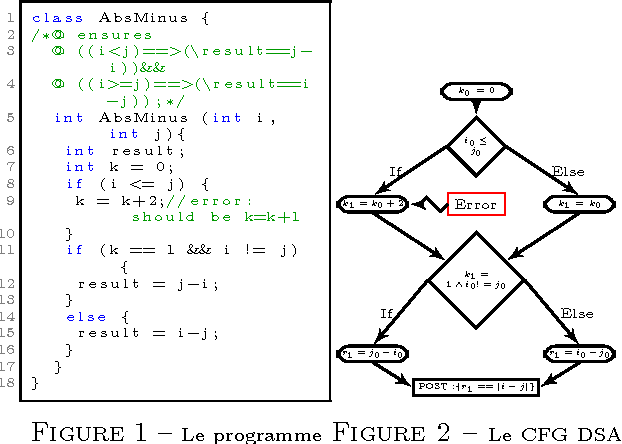
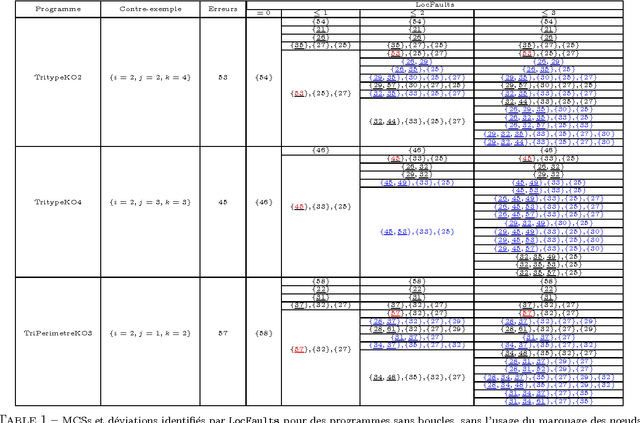


Abstract:A model checker can produce a trace of counterexample, for an erroneous program, which is often long and difficult to understand. In general, the part about the loops is the largest among the instructions in this trace. This makes the location of errors in loops critical, to analyze errors in the overall program. In this paper, we explore the scalability capabilities of LocFaults, our error localization approach exploiting paths of CFG(Control Flow Graph) from a counterexample to calculate the MCDs (Minimal Correction Deviations), and MCSs (Minimal Correction Subsets) from each found MCD. We present the times of our approach on programs with While-loops unfolded b times, and a number of deviated conditions ranging from 0 to n. Our preliminary results show that the times of our approach, constraint-based and flow-driven, are better compared to BugAssist which is based on SAT and transforms the entire program to a Boolean formula, and further the information provided by LocFaults is more expressive for the user.
Exploration of the scalability of LocFaults approach for error localization with While-loops programs
Mar 18, 2015
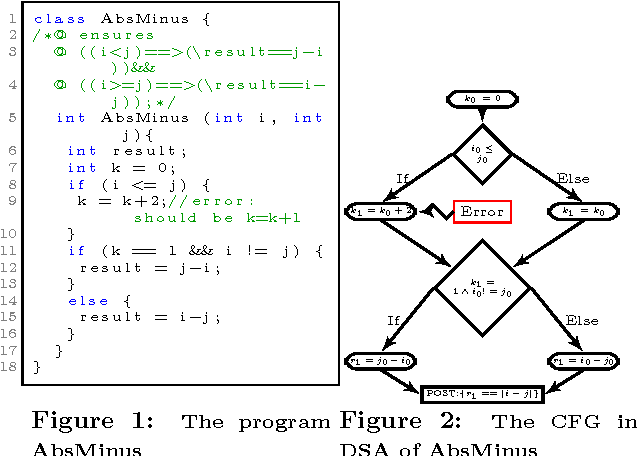
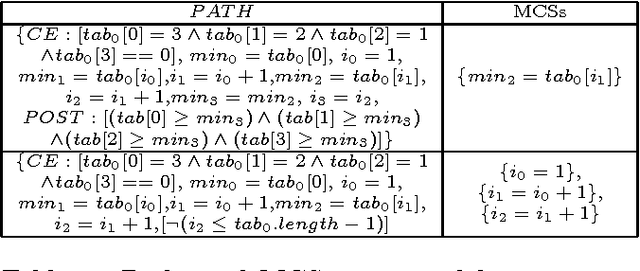
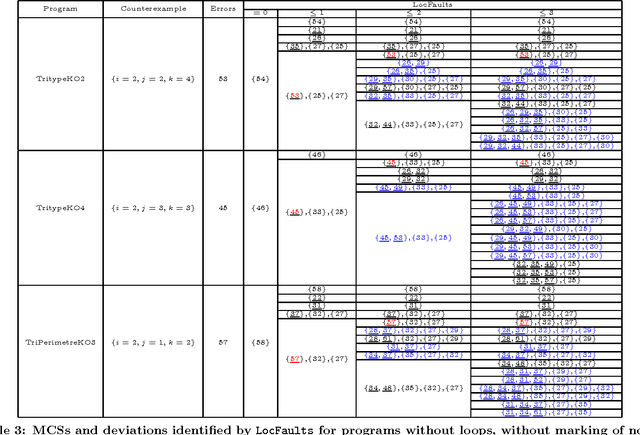
Abstract:A model checker can produce a trace of counterexample, for an erroneous program, which is often long and difficult to understand. In general, the part about the loops is the largest among the instructions in this trace. This makes the location of errors in loops critical, to analyze errors in the overall program. In this paper, we explore the scala-bility capabilities of LocFaults, our error localization approach exploiting paths of CFG(Control Flow Graph) from a counterexample to calculate the MCDs (Minimal Correction Deviations), and MCSs (Minimal Correction Subsets) from each found MCD. We present the times of our approach on programs with While-loops unfolded b times, and a number of deviated conditions ranging from 0 to n. Our preliminary results show that the times of our approach, constraint-based and flow-driven, are better compared to BugAssist which is based on SAT and transforms the entire program to a Boolean formula, and further the information provided by LocFaults is more expressive for the user.
Une approche CSP pour l'aide à la localisation d'erreurs
Apr 25, 2014
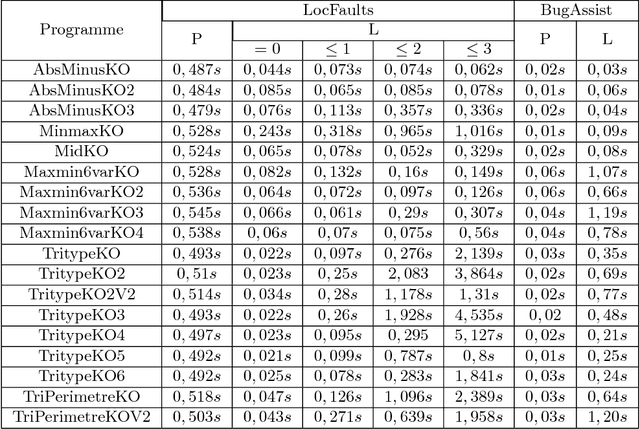
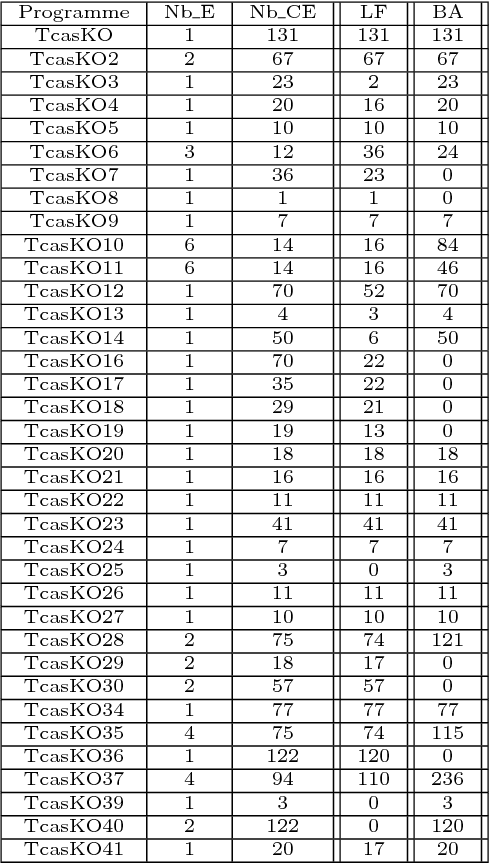
Abstract:We introduce in this paper a new CP-based approach to support errors location in a program for which a counter-example is available, i.e. an instantiation of the input variables that violates the post-condition. To provide helpful information for error location, we generate a constraint system for the paths of the CFG (Control Flow Graph) for which at most k conditional statements may be erroneous. Then, we calculate Minimal Correction Sets (MCS) of bounded size for each of these paths. The removal of one of these sets of constraints yields a maximal satisfiable subset, in other words, a maximal subset of constraints satisfying the post condition. We extend the algorithm proposed by Liffiton and Sakallah \cite{LiS08} to handle programs with numerical statements more efficiently. We present preliminary experimental results that are quite encouraging.
 Add to Chrome
Add to Chrome Add to Firefox
Add to Firefox Add to Edge
Add to Edge